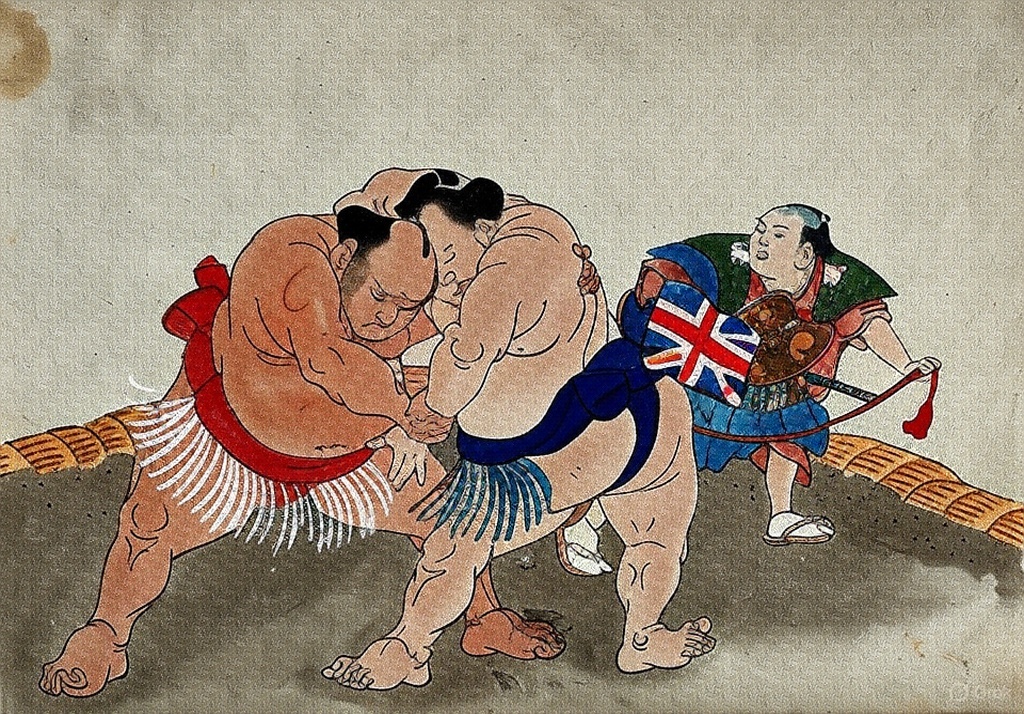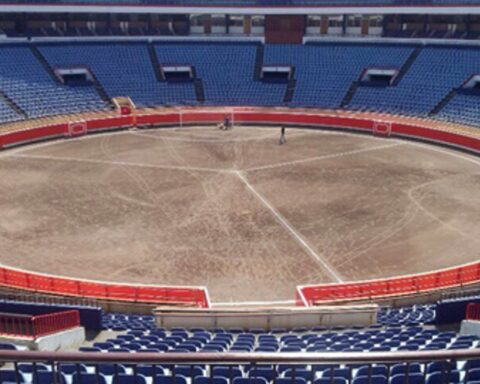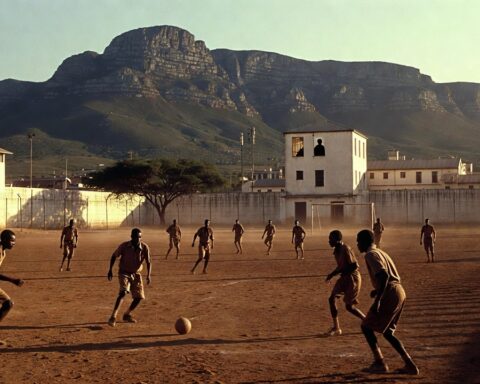There’s a strange wind blowing off the East Yorkshire coast these days — the kind of wind that smells like seawater, ambition, and deep-fried madness.
It whips through the ancient streets of Hull, scouring away the rust of failed industries and forgotten football glories, and carries with it the surreal scent of chanko-nabe, the rich, steaming stew of Japan’s sumo stables.
And riding that wind, as if torn straight out of a fevered Terry Gilliam storyboard, is a 15-year-old boy built like a refrigerator with the face of a Slavic archangel: Nicholas Tarasenko, the first great British hope for sumo since… well, ever.
Yes, Britain — a country more known for its pub brawls, passive aggression, and fish and chips than for ancient Shinto wrestling traditions — has spawned a prodigy in the unlikeliest of sports.
And not just a hobbyist, either. Tarasenko is no cosplay enthusiast or martial arts tourist. He has torn his adolescent life apart and reassembled it in the image of a rikishi, a warrior of the ring.
This kid isn’t playing around — he’s gone native. He’s given up birthdays, fizzy drinks, and teenage frivolity. He’s bowed before the altar of pain and respect in the sacred dohyo, and Japan is watching.
The Boy Who Ate the Old World
Born in Hull to Ukrainian-British parents — the precise genetic recipe for stubbornness and soul — Nicholas Tarasenko is what you might call an “old soul in a brick shithouse.”
His journey began not in some misty shrine in Osaka, but in the municipal halls and underfunded training centres of Northern England, where sumo was little more than a curiosity — something people laughed at on Channel 4 in the ‘90s between reruns of “Eurotrash.”
But Nicholas wasn’t laughing. At age 12, while his classmates were still figuring out how to lie convincingly on Snapchat, he was diving into the arcane rituals and gruelling training of sumo wrestling with the kind of religious fervour usually reserved for snake-handling evangelicals.
And unlike the slow, sweaty pace of actual sumo bouts, Tarasenko’s rise has been meteoric. At 14, he’d already won national titles and caught the eye of Japan’s sumo scouts — a rarity, like being recruited by the Vatican after your first church bake sale.
Now, at 15, he’s competing — and winning — in Japan, the crucible of the sport. He’s not just carrying the hopes of his own future; he’s dragging along the dead weight of every British athlete who ever said, “Well, it’s not really our sport, is it?”
Ritual, Reverence, and the Roar of the Gaijin
To understand how unthinkable this all is, you need to understand Japan’s relationship with sumo. This isn’t football, where talent can override scandal and booze.
Sumo is sacred. It is ritual incarnate. These massive men aren’t just athletes — they are walking shrines of discipline, pride, and myth. The top ranks are like a Shinto priesthood with a BMI of 45.
So, when a white teenager from England — the country that brought you Brexit, bangers, and Big Brother — invades this sanctified world, eyebrows don’t just rise; they detach entirely.
Foreigners in sumo are rare and often viewed with suspicion. Yes, there have been Mongolians — Hakuho, the GOAT — and a scattering of Hawaiians and Eastern Europeans, but they tend to arrive older, tougher, and with resumes built in back-alley brawls or Olympic wrestling.
Tarasenko is different. He is young, earnest, and terrifyingly good. He doesn’t swagger. He bows. He doesn’t demand the spotlight. He earns it.
And most unsettling of all — he believes. The Japanese respect that. It’s not about race, in the end. It’s about reverence. And Tarasenko shows up every morning ready to give everything, including his kneecaps, to the gods of the dohyo.
Pain Is Just Weakness Leaving the Flesh
Let’s not romanticize this too much. The road Tarasenko has chosen is not lined with cherry blossoms and serene temples. It’s more like broken bones, vomiting after dawn workouts, and sleeping in rooms that smell of foot wraps and boiled pork.
Sumo training is relentless. These men don’t diet — they eat strategically, in massive quantities, followed by forced naps to gain mass. The sessions are brutal: endless foot stomps, shiko squats, neck resistance drills, slamming practice, and the kind of flexibility exercises that would give your average footballer PTSD.
Tarasenko, who used to train alone in Hull, now battles with — and against — elite Japanese youth whose fathers and grandfathers were rikishi.
The pressure is nuclear. Every match isn’t just about victory; it’s about proving that you deserve to exist in this arena.
He’s doing it. Slowly, steadily, and with all the subtlety of a bulldozer wearing prayer beads.
History Winks, Then Charges
What we’re witnessing with Nicholas Tarasenko is something much bigger than sports. It’s a kind of historical Möbius strip — the return of cultural export dressed in flesh and fury.
Once upon a time, Japan sent Zen, karate, Nintendo, and Kurosawa to the West. We sent back rugby hooligans, Mad Max, and Adele. But now, one of ours has re-imported their ancient tradition with the soul of a monk and the body of a wrecking ball.
This isn’t just Tarasenko’s story. It’s the story of post-globalized youth — borderless, devout, and obsessed.
It’s about a world where a Yorkshire boy can grow up idolizing not Ronaldo or LeBron, but Kisenosato and Asashoryu. Where TikTok and YouTube serve as modern temples to strange new gods. Where the next Olympic hero might rise from a Brexit-rattled island and make his legend on the battlefields of foreign dreams.
Let the Madness Begin
The real question isn’t whether Tarasenko will make it to the pros — he almost certainly will. The question is what he’ll become once he’s there.
The sumo world has rules, yes, but more than that, it has tradition — centuries of it. Will it embrace the Brit with the bulldozer thighs and the chiselled discipline of a Miyamoto Musashi reincarnate? Or will the walls close in, as they’ve done to so many gaijin before?
Nicholas is still young. He speaks fluent Japanese, trains like a demon, and seems to accept the self-erasure required of a proper sumo apprentice.
But adolescence is a chemical storm, and fame is a cruel mistress. One wrong headline, one leaked video, one injury — and the story turns dark.
But if he holds the line, if he keeps his mind clean and his feet rooted in the dohyo like an old camphor tree… then, my friends, we may be witnessing the birth of a new myth. Not a British myth. Not a Japanese one. Something stranger. Something global. A new kind of warrior for a new kind of world.
Until then, we wait. We watch. And we wonder how the hell a kid from Hull ended up carrying the spirit of an empire in his belly and the ghosts of ancient sumo champions on his back.







